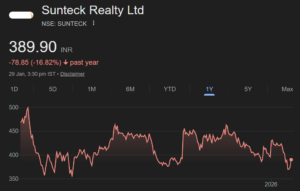

Today, when the Sensex slumped 317 points (1.62%), one could see the panic in the blood-shot eyes of investors. The euphoria has totally vanished and instead they have the look of dread on their faces.
At times like this, you must sit down, take a deep breath, calm your mind and ask whether this is not a good time to buy top-quality blue chip stocks which are available at lower prices than they were a couple of weeks ago.
Ramesh Damani’s technique is practical and effective. He says investors must visit those days when the markets had their worst sell-offs. The 2008 crises is a great example. If you see the Youtube video of CNBC-TV18 of that time and the prices that the blue chip stocks were quoting at, you will kick yourself for being paralyzed by panic and not buying stocks.
You will also realize that these major sell-off days are temporary and really an opportunity to tank up on the top-quality stocks that you always wanted to embellish your portfolio with.
Warren Buffett‘s videos are another great source of inspiration. His pithy quote “The lower things go, the more I buy. We are in the business of buying” puts everything in its right perspective.
Yet another great source of inspiration is Benjamin Graham’s The Intelligent Investor. This masterpiece was written decades ago when the World was a different place but is as relevant today as it was then.
Benjamin Graham’s classic advice was “The investor who permits himself to be stampeded or unduly worried by unjustified market declines in his holdings is perversely transforming his basic advantage into a basic disadvantage“.
In the commentary to Chapter 8, Jason Zweig, the Editor of The Intelligent Investor, points out that when stocks drop, the financial loss fires up the part of the brain that processes fear and anxiety and generates the “fight or flight” response that is common to all cornered animals. When stock prices plunge, your heart rate rises and you flinch instinctively. Losing money is so painful that many people, terrified at the prospect of any further loss, sell out near the bottom or refuse to buy more.
Jason Zweig says that all that is needed to change this behaviour is a change in the mindset. We must convince our sub-conscious mind that a fall in stock prices is something to rejoice about and be happy. Instead of fearing a bear market, you should embrace it. Jason Zweig suggests that investors enter into a “contract” with themselves in which they solemnly promise that they will buy and hold stocks for the long-term and not panic at every fall and instead use the opportunity to buy top-quality stocks.






Got here after reading your recent article.Excellent compilation.I was actually surprised to see the wisdom in some of our public(courtesy: 4th video from the top) These guys would be sitting on good piles of money now. 😀